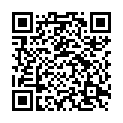|
|
|
| Module code: E2204 |
|
|
4V+1U+1P (6 hours per week) |
|
7 |
| Semester: 2 |
| Mandatory course: yes |
Language of instruction:
German |
Assessment:
Written exam, tutorial (ungraded), practical exam with composition (3 lab experiments, ungraded)
[updated 08.01.2020]
|
EE1204 (P211-0059, P211-0060, P211-0061) Energy system technology / Renewable energies, Bachelor, ASPO 01.10.2022
, semester 2, mandatory course
E2204 (P211-0059, P211-0060, P211-0061) Electrical Engineering and Information Technology, Bachelor, ASPO 01.10.2018
, semester 2, mandatory course, technical
|
90 class hours (= 67.5 clock hours) over a 15-week period.
The total student study time is 210 hours (equivalent to 7 ECTS credits).
There are therefore 142.5 hours available for class preparation and follow-up work and exam preparation.
|
Recommended prerequisites (modules):
E2101 Engineering Mathematics 1
E2102 Physics 1
E2104 Fundamentals of Electrical Engineering 1
[updated 29.05.2024]
|
Recommended as prerequisite for:
E2590
E2605 Fundamentals of High-Voltage Engineering and Test Engineering
[updated 11.10.2024]
|
Module coordinator:
Prof. Dr. Marc Klemm |
Lecturer:
Prof. Dr. Marc Klemm
[updated 29.05.2024]
|
Learning outcomes:
After successfully completing this course, students will have acquired the basic electrotechnical knowledge required for all areas of specialization in the study program and be familiar with analysis methods for magnetic fields, as well as the alternating current and three-phase current theory. I.e. they will be able to carry out calculations with the respective physical formulas and quantities and derive useful solutions, as well as make calculations for tasks given in this field based on common physical-mathematical laws, in particular with the help of complex numbers. They will be familiar with the analogies between flow, electric and magnetic fields, and thus, be capable of determining the field pattern and the way it is fundamentally influenced by shapes and materials for frequently occurring geometries. They will also be able to design magnetic circuits. Students will be able to carry out computational and metrological analyses on and make layouts of AC and three-wire circuits that are new to them, as well as dimension components. Thanks to the experiments carried out in the lab class, students will have experience in teamwork, time management and working independently. The experiments are designed as small projects and carried out in small groups.
[updated 08.01.2020]
|
Module content:
1. Magnetic fields 1.1 Basic physical quantities and fundamental laws, 1.2 Field calculation; boundary layer behavior; 1.3 Properties of ferromagnetic and ferrimagnetic materials, permanent magnets; polarization processes in materials; descriptive terms and characteristics; 1.4 Magnetic circuit: equivalent circuit, shear; 1.5 Law of induction, applications; self-inductance, 1.6 Energy, forces on pole surfaces, interfaces and moving charges; 1.7 Coupled systems: transformer; RL circuit, switching operations 2. AC / three-phase AC theory 2.1 Periodic function, characteristics of a sinusoidal alternating variable, mathematical operations, 2.2 Basic two-terminal circuits R, L, C, power in time domain, 2.3 Phasor diagrams, complex number calculation, circuit calculation with transformed image function 2.4 Complex impedance, network calculation, complex impedance matching 2.5 Locus diagrams, low and high-pass filters 2.5 Balanced and unbalanced three-phase systems Lab: V4: Magnetic fields and magnetic systems; V5: Periodic quantities, FG and oscilloscope, frequency and phase response, RC circuits V6: AC and three-phase AC; measuring and calculating power, compensation
[updated 08.01.2020]
|
Teaching methods/Media:
Blackboard, presentation, lecture notes, illustrative objects
[updated 08.01.2020]
|
Recommended or required reading:
Ameling, Walter: Grundlagen der Elektrotechnik (Band 1 & 2), Vieweg, 1997 Bosse, Georg: Grundlagen der Elektrotechnik (Band 1-4), BI Clausert, Horst; Wiesemann, Gunther: Grundgebiete der Elektrotechnik (Band 1-2), Oldenbourg, (latest edition) Frohne, Heinrich: Moeller Grundlagen der Elektrotechnik, Vieweg & Teubner, (latest edition) Lunze, Klaus; Wagner, Eberhard: Einführung in die Elektrotechnik, Lehr- und Arbeitsbuch, Verlag Technik, 1991, 13th edition von Weiss, Alexander: Allgemeine Elektrotechnik, Vieweg Weißgerber, Wilfried: Elektrotechnik für Ingenieure. Band 1-3, Springer Vieweg, (latest edition)
[updated 08.01.2020]
|


